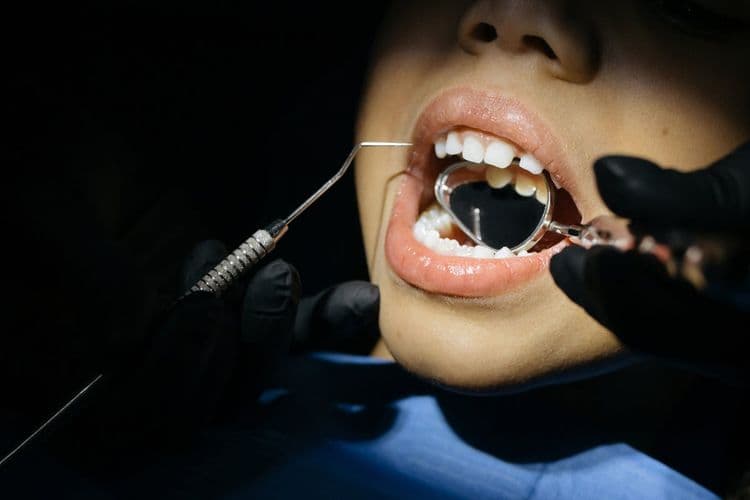The management and treatment of tooth decay, one of the most common oral health issues worldwide, encompass a broad spectrum of techniques, from basic dental fillings to complex procedures like root canal therapy. However, the effectiveness of these interventions is often dependent on several factors, including the severity of the decay and the patient’s overall dental health. Therefore, understanding the various treatment options and their implications is essential for making informed decisions about dental care. In the ensuing discussion, we will explore these treatments in greater detail, shedding light on their benefits, potential drawbacks, and their role in maintaining ideal oral health.
Understanding Tooth Decay
Tooth decay, a common yet often preventable dental issue, greatly impacts oral health. The causes of decay are multifaceted, prominently including poor oral hygiene, frequent consumption of sugary foods and beverages, and inadequate fluoride exposure. The process begins when dental plaque, a sticky film of bacteria, forms on teeth. These bacteria metabolize sugars, producing acids that erode tooth enamel, leading to cavities. Symptoms of decay are not always immediately evident. As decay progresses, however, signs such as toothache, sensitivity, visible holes or pits, and even tooth discoloration may become apparent. Consulting a dental professional at the first sign of these symptoms can lead to early detection and more effective treatment.
Preventive Measures for Tooth Decay
Prevention, the cornerstone of maintaining ideal oral health, is key in combating tooth decay. There are several preventive measures which if applied correctly, can considerably reduce the risk of tooth decay. These measures are centered around improvements in dietary habits and oral hygiene.
- Dietary habits: Consuming a balanced diet can help preserve tooth enamel. Limit the intake of sugary and acidic foods which contribute to tooth decay.
- Regular brushing: Brush your teeth at least twice a day using fluoride toothpaste, which helps prevent cavities.
- Flossing: Daily flossing removes food particles and plaque from between the teeth and under the gum line.
- Regular dental visits: Regular check-ups and professional teeth cleanings can help maintain overall oral health.
Home Remedies for Tooth Decay
While implementing the preventive measures aforementioned greatly reduces the risk of tooth decay, sometimes, despite our best efforts, it can still occur. Home remedies, particularly those involving natural ingredients and dietary changes, can play an important role in managing tooth decay. To begin with, incorporating more fluoride-rich foods and drinks into your diet can help restore minerals to your teeth. In addition, sugar-free chewing gums stimulate saliva production, which naturally cleanses the mouth. Additionally, a balanced diet rich in vitamins, minerals, and low in sugars and starches can greatly thwart tooth decay development. Finally, rinsing with a homemade mouthwash made of natural ingredients such as clove oil, cinnamon oil, or tea tree oil can help fight bacteria causing decay.
Over-the-Counter Products
Despite the effectiveness of home remedies, there are several over-the-counter products available that can enhance your oral hygiene routine and further prevent tooth decay.
- Toothpaste Options: Various toothpastes are specifically designed to combat tooth decay. Some contain fluoride, which strengthens tooth enamel and prevents cavities, while others offer tartar control and whitening properties.
- Mouthwash Effectiveness: Mouthwashes not only freshen breath but also kill bacteria that cause tooth decay. Choosing a fluoride mouthwash can provide extra protection.
- Dental Floss: Regular flossing removes plaque from hard-to-reach spaces between teeth, helping to prevent decay.
- Interdental Cleaners: These tools are effective for cleaning braces or gaps between teeth, contributing to overall oral health.
Professional Cleaning and Fluoride Treatment
Regular dental check-ups are integral to maintaining ideal oral health. They provide an opportunity for a professional cleaning that can effectively remove plaque and tartar build-up, which daily brushing and flossing might miss. This process not only aids in preventing tooth decay but also helps to keep your gums healthy, consequently reducing the risk of gum diseases.
An additional component of these check-ups is the fluoride treatment. Fluoride benefits are extensive. As a natural mineral, it strengthens tooth enamel and decreases the risk of decay. It also helps to repair early stages of tooth decay by remineralizing the enamel. Thus, professional cleanings paired with fluoride treatments are critical in maintaining oral health and preventing further dental complications.

Fillings and Crowns
In cases where tooth decay has progressed beyond the initial stages, treatments such as fillings and crowns become necessary. The choice between these restorative procedures depends on the extent of the decay, the location of the tooth, and the patient’s overall oral health.
- Fillings: This treatment involves removing the decayed tooth material and replacing it with filling materials. These may include composite resins, amalgam, gold, or porcelain, each having its own advantages and drawbacks.
- Crowns: If the decay is extensive and has weakened the tooth, crowns may be advised. A crown fully covers the damaged tooth, providing strength and improving its appearance.
- Crown Types: These include metal, porcelain-fused-to-metal, all resin, or all ceramic. Each type has different durability and cost considerations.
- Choosing Treatment: Your dentist will recommend the most suitable treatment based on your individual situation.
Root Canal Therapy
Root canal therapy is a vital component of tooth decay treatment. This procedure’s understanding is necessary for individuals seeking relief from significant decay or infection. Additionally, effective aftercare post-therapy is equally important to guarantee successful treatment and prevent further complications.
Understanding Root Canal Procedure
Delving into the intricacies of dental procedures, it is essential to comprehend what a root canal procedure entails. This procedure is a common treatment in managing tooth decay and alleviating oral pain. Here’s a simplified breakdown:
- Diagnosis and Anaesthesia: The dentist determines the need for root canal therapy and administers local anesthesia for pain management.
- Pulp Removal: The pulp, a mixture of nerves and blood vessels, is removed from the tooth’s core.
- Tooth Cleaning and Shaping: After pulp removal, the tooth’s interior is cleaned and shaped.
- Filling and Sealing: The tooth is then filled with a rubber-like material and sealed.
The entire process may take one or more visits, depending on various factors. Understanding the procedure helps manage expectations and plan the recovery timeline.
Aftercare for Root Canals
While the execution of a root canal procedure is critical, the aftercare is equally paramount in ensuring a successful recovery and long-term dental health. The first aspect of aftercare involves effective pain management. This typically includes prescription or over-the-counter analgesics to alleviate discomfort and inflammation. Alongside pain management, proper oral hygiene practices such as gentle brushing and flossing around the affected area are essential. Dietary adjustments also play a key role in the healing process. Patients should avoid hard, crunchy or hot foods that could irritate the area or dislodge the temporary filling. Instead, soft, lukewarm meals are recommended. Attention to these aftercare measures can considerably enhance your comfort and promote ideal healing after root canal therapy.
Tooth Extractions and Implants
A considerable number of adults will experience tooth extraction and subsequently consider dental implants at some point in their lives. Tooth extraction often becomes necessary due to severe tooth decay, while dental implants serve as one of the most effective tooth replacement options.
The implant benefits are as follows:
- Stability and Comfort: Implants are anchored in the jawbone, providing a stable and comfortable fit.
- Bone Preservation: They prevent bone loss that occurs after tooth extraction.
- Longevity: With proper care, implants can last a lifetime.
- Natural Appearance: Implants closely resemble natural teeth, enhancing the aesthetic appeal.
Frequently Asked Questions
Can Tooth Decay Affect Overall Health?
Yes, tooth decay can impact overall health. It can cause tooth sensitivity, infections, and may lead to systemic diseases. Maintaining dental hygiene is key to preventing decay and therefore, safeguarding general health.
Does Health Insurance Typically Cover Tooth Decay Treatments?
Health insurance policies vary greatly, but most typically include coverage for dental procedures. However, coverage limits and exclusions may apply. It’s essential to review your specific insurance plan for detailed information on dental treatment coverage.
Can Tooth Decay Lead to Gum Disease?
Yes, tooth decay can potentially lead to gum disease if not treated promptly. Poor oral hygiene often results in tooth decay, which may escalate to gum disease, causing tooth sensitivity among other complications.
How Does Tooth Decay Relate to Heart Disease?
Tooth bacteria, if not removed through proper oral hygiene practices, can enter the bloodstream, potentially contributing to heart disease. The relationship between oral health and heart disease emphasizes the importance of maintaining dental health.
Are There Age-Specific Treatments for Tooth Decay?
Yes, age-specific treatments do exist. Pediatric treatments often involve fluoride applications and sealants, while senior considerations may include increased periodontal care and restorative procedures like crowns, bridges, or implants.


